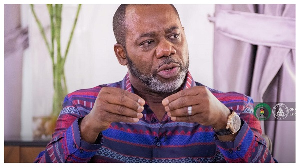I humbly write this petition to you requesting your consideration and admission of the 50 LLB graduates who passed the latest entrance examinations to the Ghana School of Law but were declined admission after the interviews.
I humbly plead that the interviews are not considered as a means of disqualifying or eliminating the interviewees but as an opportunity to ascertain their additional training needs and strategies to ensure their continuing quality education at the professional legal education level.
It is my humble plea that the General Legal Council, with your legislative mandate for the organisation of and arrangements for legal education under s1 (a) and s13 of the Legal Profession Act, 1960 (Act 32), admit the law graduates, accordingly.
Low participation
With reference to the Bar records, out of a total number of 5,835 lawyers called to the Ghana Bar from 1981 to October 2014, there are 1,319 females and 4,516 males.
My humble submission is that there currently exists an extremely low participation of lawyers including female lawyers at the Bar; in the staffing of the Judicial Service, Judiciary, Attorney- General’s Department in all the 10 regions of Ghana,the Commission on Human Rights and Administrative Justice (CHRAJ), other ministries, departments and agencies of state, the 275 metropolitan, municipal and district assemblies (MMDAs), Regional and National Houses of Chiefs, National Legal Aid Scheme, criminal lawyers, prosecutors; public defence lawyers for the poor and under-privileged, legal advisors and contract facilitators in public private partnerships agreements.
Inadequate access to legal aid services
Research findings indicate a high incidence of inadequate access to legal aid services for the poor and low income groups who form a sizeable chunk of Ghana’s population.
There are also inadequate female lawyers to provide voluntary pro-bono support for FIDA legal Aid Services which serves women and children from the 10 regions in only two offices which are located in Accra and Kumasi.
Law students in the L.L.B. Programme, who are trained for three years in two semesters per year courses, would have passed in a total of six semesters for the three years; about 21 law subjects as follows:
LEVEL 100
1. Legal systems and Legal Methods
2. Constitutional Law
3. Law of Contract
4. Legal Writing and Research
5. Public International Law
6. Labour and Employment Law
7. Human Rights Law
8. Alternative Dispute Resolution
9. Administrative Law
LEVEL 200
1. Criminal Law
2. Commercial Law
3. Torts
4. Immovable Property
5. Intellectual Property Law
6. Environmental Law
LEVEL 300
1. Conflict of Laws
2. Equity and Succession
3. International Trade and Investment Law
4. Jurisprudence
5. Tax and Revenue Law
6. Company Law
Students bear cost
Fortunately, the costs of training one lawyer which include salaries of administrative and support services staff and lecturers at the respective private and some quasi-governmental law faculties, the costs of transportation and utility bills, have been borne by the students and not by the government.
This is a form of public -private partnership in the access quality legal education which will in the short and long-term impact on national development since a number of lawyers will provide full or part-time services to the public sector.
Ghana is a developing country with requirements for judges in lower courts across the country and lawyers in many sectors including legal departments in all the 275 metropolitan, municipal, and district assemblies in the 10 regions with their respective Urban and Zonal councils.
Elimination interviews
We cannot as a developing country afford the luxury of discarding or throwing away the expertise of 50 law students who passed the law school entrance exams, but failed to meet the five to 10 minute elimination interviews. The investments in developing the pool of human resources is too much to be ignored.
The five to 10 minute entrance interviews which asks a law student their name, who they are, why they want to become lawyers, current affairs questions such as the global migration crises, the Arab spring uprisings and recent events in Burkina Faso may be relevant in getting to know students better and affirming their knowledge, expertise and strategise for their further training but not for purposes of elimination.
In addition to my plea that the 50 students are admitted in the short-term, I humbly recommend that further steps are taken to increase the numbers of law graduates enrolled in the Ghana School of Law and its campuses in subsequent years.
I humbly recommend the institution of a form of six months to one year mandatory national legal service which will constitute mandatory internship or legal apprenticeship schemes for newly enrolled lawyers with civil and public services including the Judicial Service, Attorney General’s Departments, MMDAS, Houses of Chiefs, National Legal Aid Schemes, Domestic Violence and Victim Support Unit ( DOVSSU), FIDA Legal Aid Services, CHRAJ and their offices in all 10 regions as part of promoting public-private partnership in legal education and contribution to national development.
The Attorney-General’s Department, which has about 200 lawyers instead of over a 1,000, is seriously under-staffed and the kind of cases one attorney handles a day in court places an unbearable burden on the access to and delivery of justice for the citizens of Ghana.
I hereby affirm my humble petition for your consideration and supplementary admission of the 50 LLB graduates who passed the latest entrance examinations to the Ghana School of Law but were declined admission after the interviews.
Opinions of Wednesday, 4 November 2015
Columnist: Gloria Ofori-Boadu



















